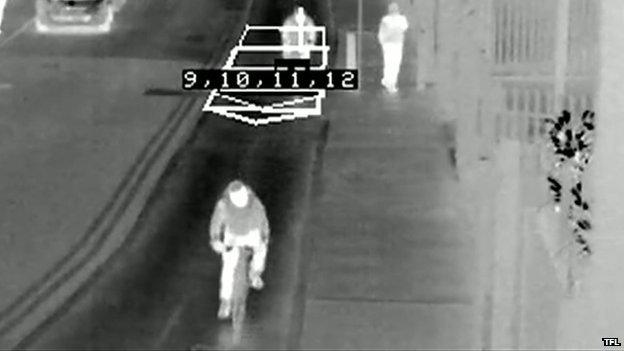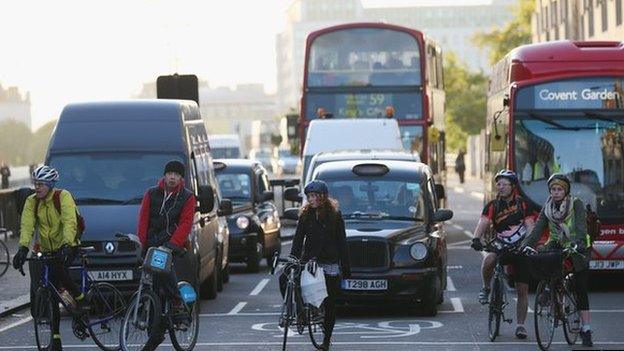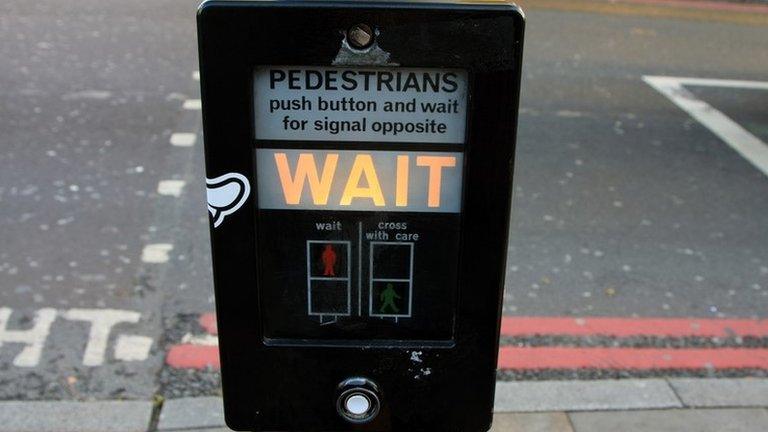London cyclists to benefit from traffic light detection trial
- Published

The technology is designed to detect large groups of cyclists at road junctions
London is to trial new traffic light technology that aims to make it safer for cyclists at busy road junctions.
Radar and thermal detection will be used to estimate the number of cyclists at junctions, and the lights will then stay green for longer if necessary.
The pilot follows the introduction in 2014 of "intelligent pedestrian crossings" that detect when groups of people are waiting to cross.
Cable Street and Cycle Superhighway 3 will be the first trial locations.
'World first'
Glynn Barton, who is running the traffic light cycle project, said the pilot should help make traffic lights more responsive for cyclists.
Mayor of London Boris Johnson said: "Once again London leads the way as we host world-first trials of technology that has the potential to bring significant benefits to cyclists."
There are more cyclists than ever in London and fewer people are being seriously injured or killed when cycling in the capital, figures from Transport for London suggest.
The Department for Transport has also agreed low-level cycle signals can be installed at traffic signals in the capital as required. These would be dedicated signal lights for cyclist that sit about 1m (3ft) below the regular traffic light signals.
British Cycling campaigns manager Martin Key said: "It is great to see that low-level traffic lights can now be installed more widely across London.
"They have been used successfully across Europe and make it easier for cyclists to know when it is safe for them to ride through the junction.
"Transport for London is again leading the way and these lights, plus other cycle friendly measures, should be available to use not only in the capital but across the whole country over the next couple of years."
- Published4 June 2015

- Published7 March 2014
